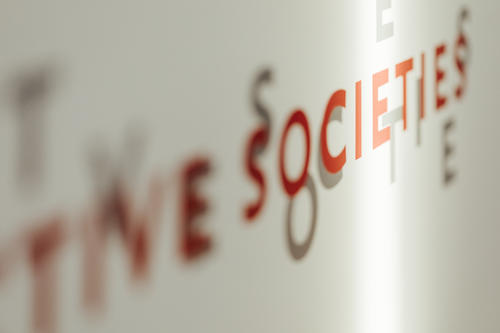Path Navigation
- Homepage
- Press
about us
Affect and emotion are at the core of culture and society. They enable social cohesion and solidarity but also create exclusion and isolation. We investigate the fundamental role of affect and emotion for social life in the mobile, entangled and mediatized world of the 21st century. It is our goal to establish a new understanding of societies as affective societies.
Over 70 people, scientists from ten disciplines, student employees and administrational staff, work in 17 projects to study affects from their perspectives. 7 different insitutions realize the interdisciplinary program, bringing together social-, nature-, cultural sciences and humanities. Those include the Freie Universität Berlin as speaker university, Charité Berlin, Universität Hamburg, Max Planck Institut für ethnologische Forschung, Martin-Luther-Universität in Halle (Saale), Ethnologisches Museum zu Berlin and Botanischer Garten Berlin.
Downloads
Press Contact
Office SFB1171
email: office@sfb1171.de
Press Review
"Unsettling Encounters" - Maren Wirth on affect in collaborative research in a blogpost for the german center for cultural loss
In a blog post for the German Centre for Cultural Loss (Dt. Zentrum für Kulturverlust(, Maren Wirth reports on affects in collaborative research on colonial collections.
"We are a group of five, three men and two women, sitting in the shade of a Maasai hut in Oltukai, northern Tanzania. One of the men is pointing at me angrily and shouting in Maa (Maasai language). The intonation is demanding, but with my poor language skills, I am unable to understand what he wants me to do. "He says you should tell your father to give him back his things," my friend Leah translates. My heart is pounding. I still don't quite understand how we got to this point and what these men are so upset about."
"Unsettling Encounters" - Maren Wirth on affect in collaborative research in a blogpost for the german center for cultural loss
In a blog post for the German Centre for Cultural Loss (Dt. Zentrum für Kulturverlust(, Maren Wirth reports on affects in collaborative research on colonial collections.
"We are a group of five, three men and two women, sitting in the shade of a Maasai hut in Oltukai, northern Tanzania. One of the men is pointing at me angrily and shouting in Maa (Maasai language). The intonation is demanding, but with my poor language skills, I am unable to understand what he wants me to do. "He says you should tell your father to give him back his things," my friend Leah translates. My heart is pounding. I still don't quite understand how we got to this point and what these men are so upset about."
New Audio-Podcast w/ Nazlı Kilerci-Stevanović in Dlf Kultur
In this interview with Deutschlandfunk Kultur, film scholar Nazli Kilerci-Stevanović talks about Anadolu rock legend Cem Karaca, about whom a biopic was recently released in selected German cinemas.
Wolfgang Merkel, Jan Slaby & Stephanie Rohde on the threat to democracy posed by a lack of participation on Dlf Kultur
Wars, climate, economic crisis: many people avoid consuming news in order to protect themselves from negative emotions. Are we experiencing a retreat into the private sphere? And if so, what does this mean for democracy?
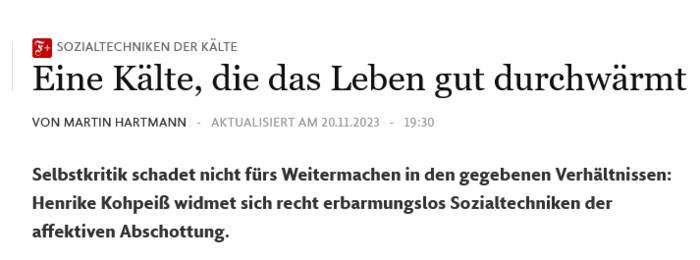
"Social techniques of affective isolation" - review of Henrike Kohpeiß's 'Bürgerliche Kälte' in the FAZ
"Self-criticism does no harm for continuing in the given circumstances: Henrike Kohpeiß devotes herself quite mercilessly to social techniques of affective compartmentalisation," writes philosopher Martin Hartmann in the FAZ.
"Why Turkish films have a hard time in Germany". Interview with Nazlı Kilerci-Stevanović on Deutschlandfunk-Kultur
Film scholar Nazlı Kilerci-Stevanović was a guest on Deutschlandfunk Kultur and spoke about the reasons for the general lack of interest in cinema films from Turkey in Germany, why they are often only watched within the Turkish community and why Turkish films have a hard time in Germany.
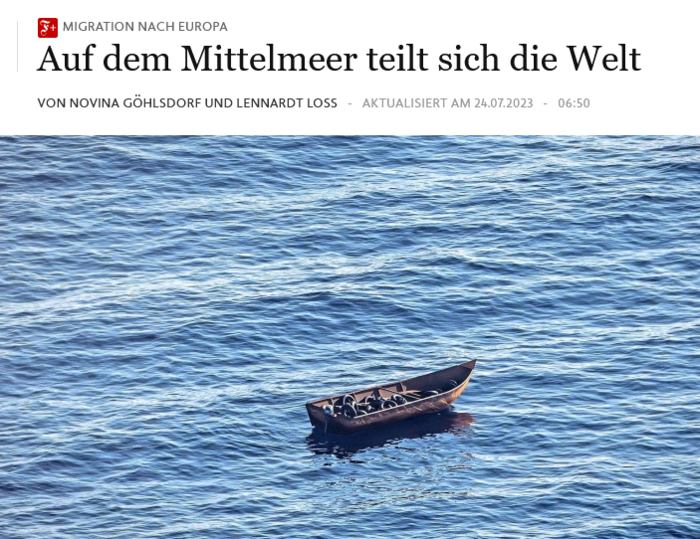
Henrike Kohpeiß on "Bürgerliche Kälte" in the FAZ
An interview with philosopher Henrike Kohpeiß about her book and how "Bürgerliche Kälte" holds european societies together: by keeping their distance to others.
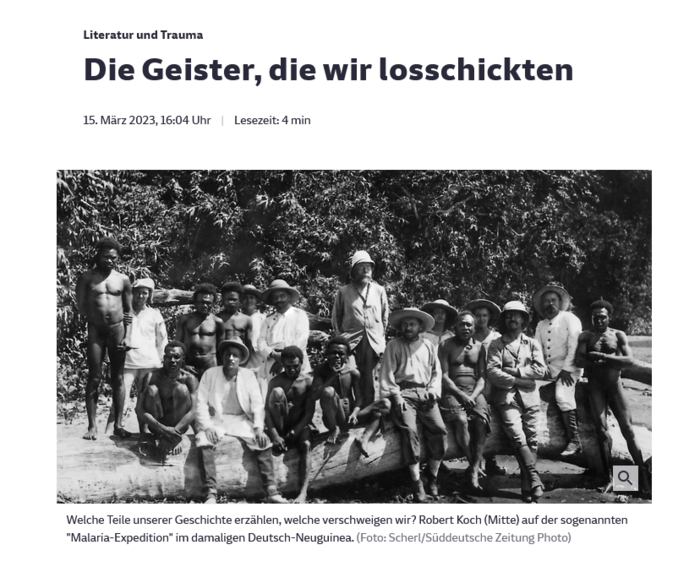
Fabian Bernhardt on literature and trauma in "Süddeutsche Zeitung"
The novelist Katharina Döbler and the philosopher Fabian Bernhardt discuss the lasting impact of colonial entanglements at the Literarische Colloquium Berlin.
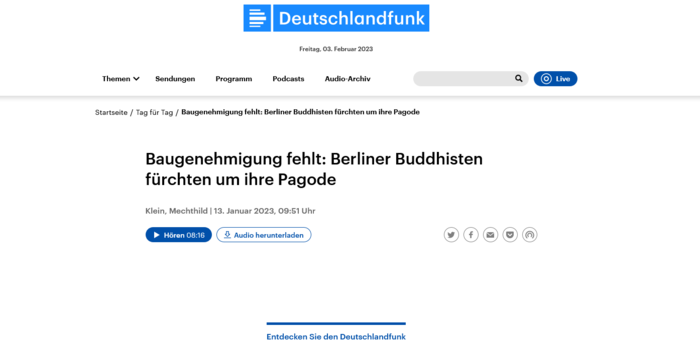
Deutschlandfunk interview with Maximilian Müller
Berlin Buddhists fear for their pagoda due to a missing building permit: Maximilian Müller in an interview with Deutschlandfunk about the possible closure of the Buddhist pagoda in Berlin-Lichtenberg.

taz Talk: "Does Buddhismus belong to Germany?" with Maximilian Müller
A Vietnamese Buddhist pagoda in Berlin-Lichtenberg is to close because of its location in a commercial area. For a church congregation it would not be a reason for closure, but Buddhist institutions do not enjoy any religious privilege when it comes to the building laws in Germany. A taz Talk about multiculturalism in Berlin with Maximilian Müller from subproject A02: 'Affects and Processes of Institutionalization in Vietnamese Carescapes of Berlin'.
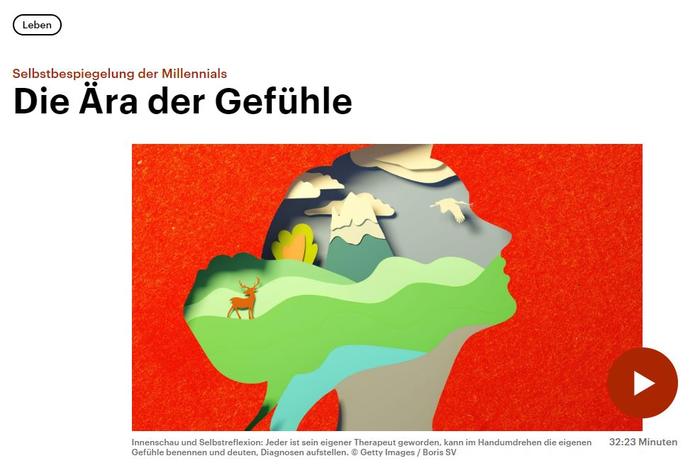
Elgen Sauerborn talks about the "Era of Emotions" in "Deutschlandfunk Kultur"
Anyone surfing the internet today can hardly avoid a new language of emotionality and its terms: toxic, aromatic, gaslighting, mental load, trauma bonding, trigger warning, imposter syndrome. But how is the increasing differentiation of our emotional vocabulary related to the singularization of society? Are we living in a new "era of emotions"? Emotion sociologist Elgen Sauerborn comments on these questions in Deutschlandfunk Kultur's "Echtzeit" program.
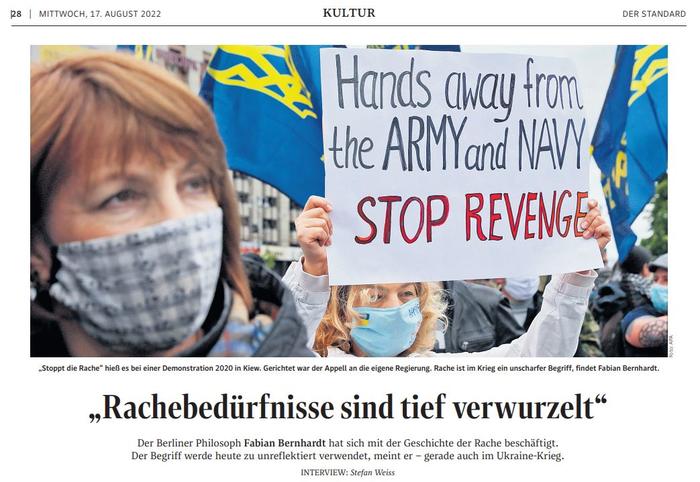
Interview with the philosopher Fabian Bernhardt in "Der Standard"
Revenge is a word that is often used to explain violent conflicts. But are we using the term correctly? In an interview with Stefan Weiss from "Der Standard," Fabian Bernhardt explains how revenge was defined in history and how the term is used today - for example, in connection with the Ukraine war.
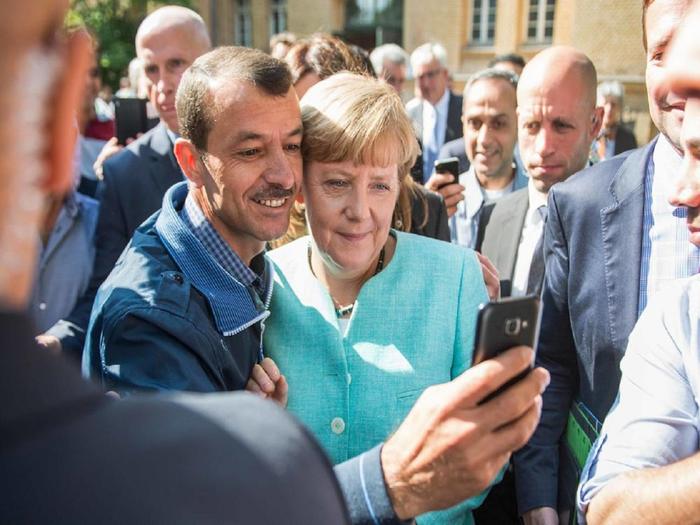
Interview with Débora Medeiros: From „we can do it" to baiting
"Being neutral and detached - this self-image of many journalists is an illusion," says Débora Medeiros (TP B02) in an interview with Der Tagesspiegel.

Interview about the Ukraine war with Zeit-Online
It is often said, the war is Putin's revenge. Could it be that this is projected onto him? The philosopher Fabian Bernhardt (B05) says that revenge always tells a story.
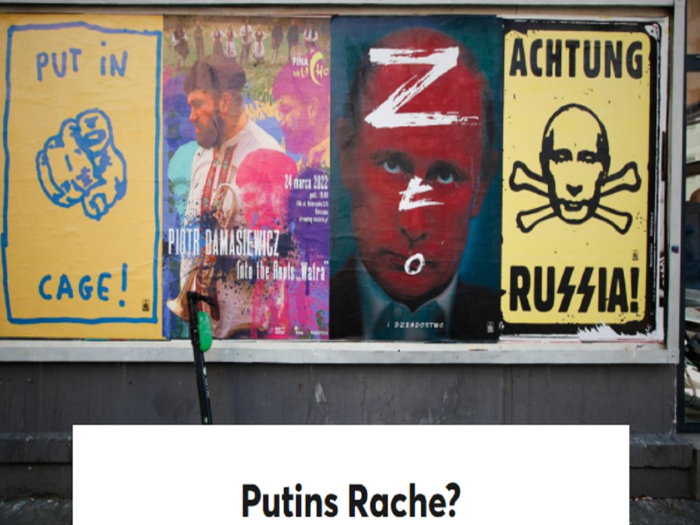
Putin's Revenge? Fabian Bernhardt's comment on philomag.de
Behind Putin's war of aggression, we read again and again, is an archaic motive: revenge. But this justification actually reveals more about us than about Putin. An impulse by Fabian Bernhardt (B05).

"The Invisibles": Birgitt Röttger-Rössler in an Interview with the Berliner Zeitung
Social and cultural anthropologist Birgitt Röttger-Rössler (SP A01) talks to BZ about the lives of Vietnamese in Berlin and the conflicts between the generations.

Aletta Diefenbach: Between purpose of life, mockery and nostalgia. How Christianity unties and divides right-wing adherents
Aletta Diefenbach's (SP C04) new article is published in the Journal of Religion, Society, and Politics and explores the role of Christianity as an identity marker for the New Right.

Fabian Bernhardt on revenge in „Neugier genügt – Redezeit“
Revenge is one of the dark emotions, which is why we want to banish it from our lives as far as possible. However, author and philosopher Fabian Bernhardt (SP B05) says that the desire for retribution plays a significant role.

Elgen Sauerborn on Deutschlandfunk Nova: "That's why we talk more and more about our feelings".
Am I highly sensitive? What is toxic behavior? More and more terms from the therapeutic field are migrating into everyday life. Elgen Sauerborn (SP B06) gives an insight into the structure of our emotions on Deutschlandfunk Nova.

„Rache. Über einen blinden Fleck der Moderne“ – Fabian Bernhardt in Conversation
On Deutschlandfunk's "Büchermarkt" program, Fabian Bernhardt (TP B05) talks with Miriam Zeh about modernity's relationship to revenge and introduces his new book.

Fabian Bernhardt: "The Philosophy of Revenge" on Deutschlandfunk Kultur
Tit for tat? Revenge has no place in the modern self-image - but feelings of revenge are by no means foreign to us, says philosopher Fabian Bernhardt (SP B05). A conversation for "Sein und Streit" from Deutschlandfunk Kultur.
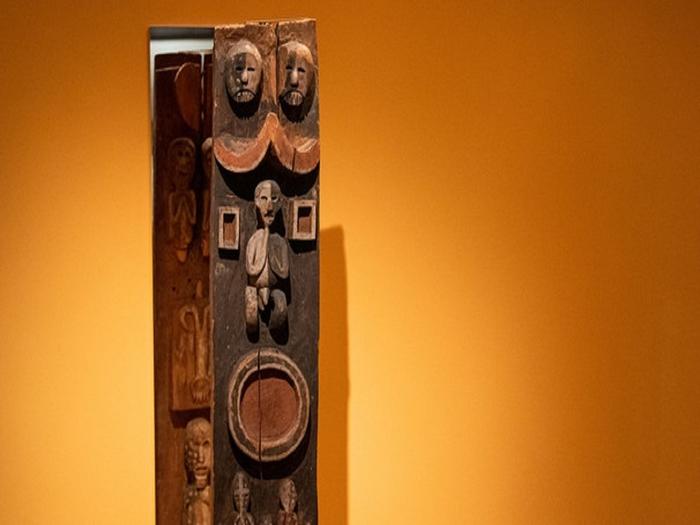
Looted Art & Benin Bronzes: Paola Ivanov on the Restitution Debate
Things are happening in German museums: looted art is being returned, decolonisation is taking shape. Paola Ivanov (A06) on the restitution debate, colonialism and modernity in conversation with Bayern2.

TV Diskurs Interview with Margreth Lünenborg
Margreth Lünenborg, Professor of Journalism and Communication Studies (TP B02) in an interview with 'TV Diskurs' about her research on reality television formats, their affective impact and "Guilty Pleasure".

Article "Nachbarschaft" about Max Müller's research
Max Müller, religious scholar and research assistant in sub-project A02, is researching Vietnamese life in Berlin. In the article "Nachbarschaft" (Neighbourhood), the Tagesspiegel gives an insight into the life of the Vietnamese community in Lichtenberg and the work of Max Müller.
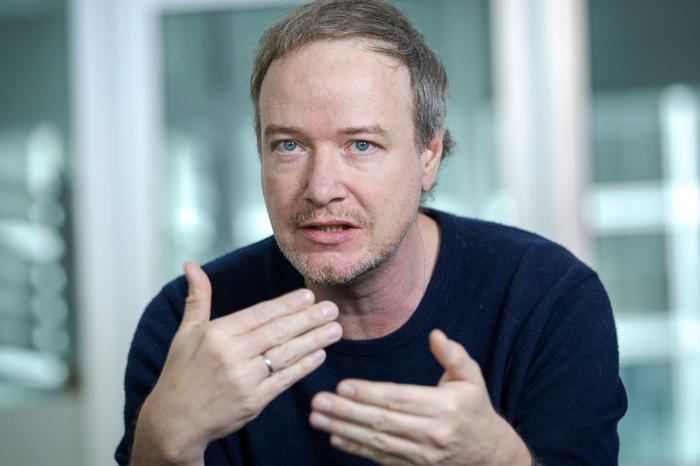
Interview with Christian von Scheve and Südwest Presse
In an interview with the Südwest Presse, sociologist Christian von Scheve (TP C04) talks about the Corona Pandemic. Is the age of the egoist dawning after the pandemic? No, says sociologist Christian von Scheve. His future scenario is quite different.

How long is "forever"?
How long is "forever"? –this special on ZDFneo investigates whether you can foresee how long a relationship will last and whether there is such a thing as eternal love. Our spokeswoman Birgitt Röttger-Rössler, cultural and social anthrolpologist, provided some answers.

Interview with Jürgen Brokoff at Deutschlandfunk
In this Jürgen Brokoff, head of project C04, talks about his study "Literatur und Bocksgesang", in which he looks at two heatedly debated essays from the early 90s to ask, why they were able to cause so much outrage.

Nach Corona: Ein Medizinethnologe erklärt, dass wir lernen müssen, mit Krisen zu leben
In an interview with DIE WELT, Hansjörg Dilger from the subproject C03 pleads for a serious discussion about how we want to live in a crisis-ridden world with Corona - instead of pretending that it all will stop at some point.
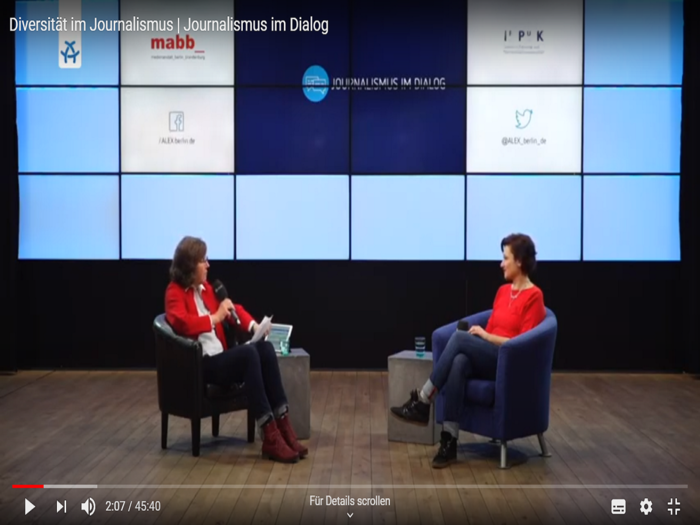
Diversität im Journalismus - Journalismus im Dialog
What about the diversity in German editorial offices? Do black / migrant / muslim lives really matter? Journalist Ferda Ataman from the New German Media Makers and Prof. Dr. Margreth Lünenborg from TP B02 in the third edition of "Journalism in Dialog" by mbb.

Süßes Gefühl mit bitteren Folgen
Revenge is sweet, they say. In practice however, revenge is usually not a good idea. In the BR2 program "radioWissen", Fabian Bernhardt (TP05) gives an interview with Daniela Remus on this subject.
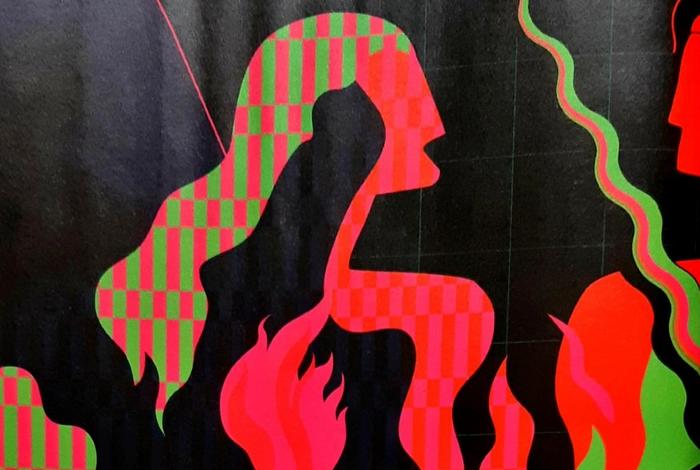
Der Zorn in uns
Fabian Bernhardt (project B05) published an article on fantasies of vegeance in the Philosophie Magazin, in which he discusses the difference between the self-image and the image of the other when it comes to longing for revenge.

Ein Richtungsstreit unter Sezessionisten
An article by Aletta Diefenbach and Tim Lörke (both project C04), published by FAZ, describes the struggle for interpretational sovereignity within the right-wing scene and the wrestle of the intellectual New Right with the loss of importance during the "Anti Corona measures"-demonstrations.
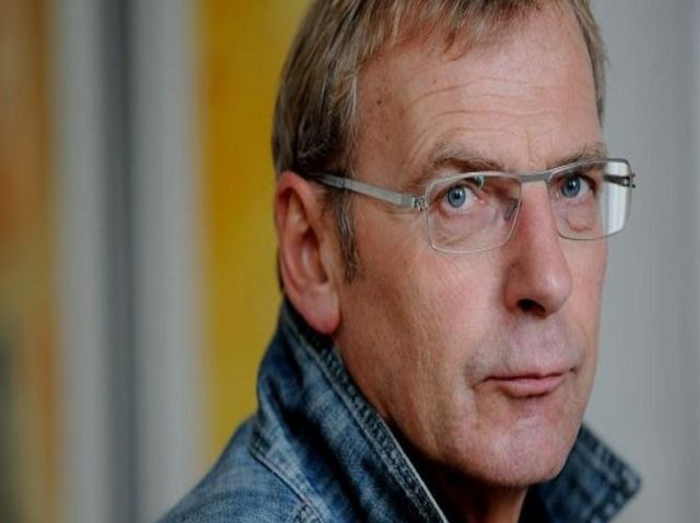
Der Fall Tönnies zeigt, warum wir über Scham sprechen sollten
In an interview with Bayerischer Rundfunk, sociologist Sighard Neckel explains the public constructions of avoiding shame using the meat manufacturer Tönnies as an example and explains what we can learn from our feelings of shame.
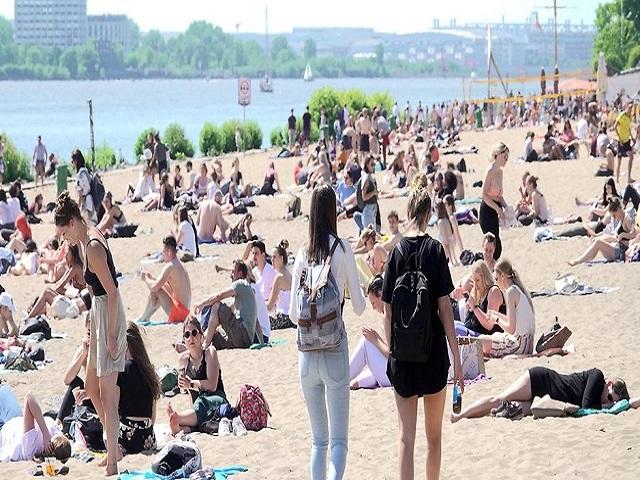
Zwischen Leichtsinn und Vorsicht Hamburg ist gespalten – in zwei Corona-Lager
Sighard Neckel, head of TP B06 and professor at the University of Hamburg in conversation with the Hamburger Morgenpost about the generation issue in dealing with corona measures and the new normal.

Le racisme, une histoire d'émotions ?
In an interview with Deutsche Welle, sociologist Yasemin Ural reports on the role of emotions in the perception of racism and in the dynamics of the Black Lives Matter movement.
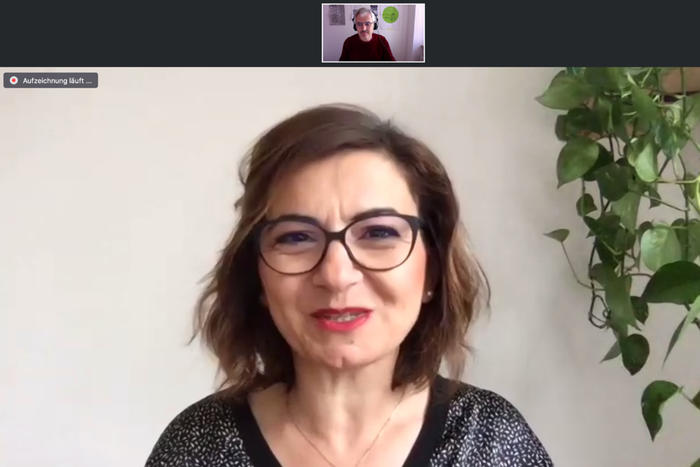
Jetzt steht eine Grundsatzfrage auf dem Spiel
Bilgin Ayata talks with Tobi Müller in the "Sonntagsgespräch" of the Deutsche Theater about the refugee situation in Europe during the pandemic.
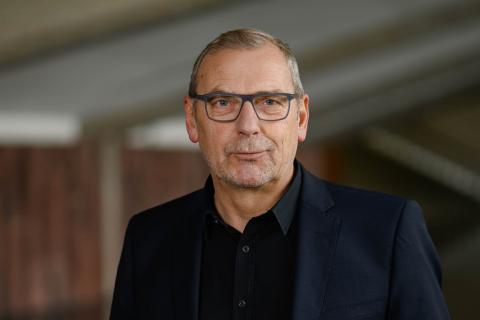
Solidarität in der Krise: Warum die Suche nach Sündenböcken so schädlich ist
When an earthquake shatters a city, people tend to show solidarity. When an epidemic is going round, it seems that fear is swallowing people's empathy. Sighard Neckel, head of project B06, explains why in an interview with GEO.

"Natürlich löst das Ängste aus"
Hansjörg Dilger, head of project C03, gave Zeit Online an interview on the dealings of different cultures with diseases in general and the Coronavirus specifically.
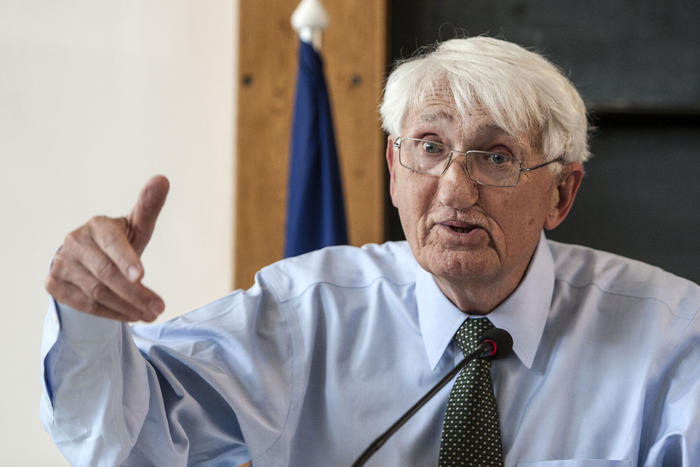
Moralischer Universalismus in Zeiten politischer Regression
Aletta Diefenbach, research assistant at project C04, together with Claudia Czingon and Victor Kempf, conducted an interview with Jürgen Habermas, which was publushed in the Leviathan.

Trapattoni, Özdemir und jetzt Greta Thunberg: Wutreden - Gefühlsausbruch oder Rhetorik?
Jonas Bens, project A06, gave Radio Bremen an interview.

Der Siegeszug des Heimatbegriffs gefährdet die europäische Demokratie - ein Beitrag von Bilgin Ayata im Tagesspiegel
Everyone is talking about 'Heimat'. This plays into the hands of dictators like Erdogan - and obscures the real problem. Bilgin Ayata, Mercator-Fellow at the CRC, delivers the opening speech at the scientific conference of this years Herbstsalon at the Gorki Theater in Berlin. It was printed in the Tagesspiegel.

"'Heimat' is deeply engraved into our bodies"
An interview with Birgitt Röttger-Rössler on WDR 5's programme "Neugier genügt" on the 19th of April, 2018.

Participatory theater today? The role of immersion
Theresa Schütz, research assistant at at B03: Reenacting Emotions, talked with Deutschlandradio Kultur about particapory theater and the role of immersion.
Image Credits

Bild_Faz_Hartmann
Image Credit: —

2023-07-24_Henrike_Kohpeiß_FAZ
Image Credit: —

2023-03_FB_Literarisches-Colloquium-Berlin
Image Credit: —

Baugenehmigung-fehlt-Berliner-Buddhisten-fuerchten-um-ihre-Pagode
Image Credit: —

Bild_Pagode_taz_talk
Image Credit: —

Screenshot Deutschlandfunk Kultur
Image Credit: —

Fabian Bernhard im Interview mit "Der Standard"
Image Credit: —

Von „Wir schaffen das“ bis Hetze
Image Credit: (c) Picture Alliance/Bernd von Jutrczenka

Putins Rache
Image Credit: © Peter Forster/unsplash.com

Putins Rache?
Image Credit: (c) NurPhoto (Imago)

Die Unsichtbaren: Anthropologin erforscht das vietnamesische Berlin
Image Credit: (c) Laura Tran

Kreuz
Image Credit: —

„Neugier genügt – Redezeit“
Image Credit: —

Elgen Sauerborn bei Deutschlandfunk Nova
Image Credit: (c) Deutschlandfunk Nova Screenshot

"Rache. Über einen blinden Fleck der Moderne"
Image Credit: (c) Matthes & Seitz Berlin

Uma Thurman als Racheengel in „Kill Bill“
Image Credit: (c) picture-alliance / Mary Evans Picture Library

Der "Blaue-Reiter Pfosten", Ausstellung des Museum Fünf Kontinente in München
Image Credit: (c) picture alliance/dpa | Lino Mirgeler

TV Diskurs mit Margreth Lünenborg
Image Credit: —

2021-04-22_Tagesspiegel_MMueller
Image Credit: —

(c) Janine Schmitz/photothek.de
Image Credit: (c) Janine Schmitz/photothek.de

"Wie lange ist für immer?" auf ZDFneo
Image Credit: —

Logo Deutschlandfunk
Image Credit: Deutschlandfunk

2021-01-28_dilger_welt
Image Credit: (c) Getty Images/Westend61

2020-11-24_luenenborg_mabb2
Image Credit: (c) Screenshot ALEX Berlin

2020-09-29_InterviewBR_Bernhardt2
Image Credit: (c) colourbox.com

Revenge: How do we cope with an affect that has been banned to the realm of the imaginary?
Image Credit: AnaKova

Anti-Corona-Stimmung: Unter den rechten Gruppen schwelt ein Kampf um die Deutungshoheit.
Image Credit: AFP

2020-06-25_neckel_br2_interview
Image Credit: (c) Sighard Neckel

2020-06-25_neckel_corona_mopo1
Image Credit: dpa

2020-06-17_ural_bericht_dw
Image Credit: (c) C. Hardt

20-04-26_ayata_dt
Image Credit: deutschestheater.de

sighard-neckel-p
Image Credit: Sebastian Engels

dilger_2-3
Image Credit: (c) Kevin Frayer; Marco Di Lauro/Getty Images

2020-03-16_Habermas_2-3
Image Credit: wikimedia

Radio Bremen
Image Credit: —

2019-10-25_ayata tagesspiegel
Image Credit: (c) Michael Kappeler

WDR5
Image Credit: wdr.de

Deutschlandradio Kultur
Image Credit: —
News
Dissertation award for Laibor Kalanga Moko
Dr. Laibor Kalanga Moko, who has been a research associate at the CRC Affective Societies in our sub-project "Contested Property" since 2019, has been awarded this year's doctoral prize of the Berlin Scientific Society.
Jul 30, 2024
Workshop on Affective Excess
"It is through feeling that we know, or rather sense , the brownness of the world and of each other". This observation on the affective nature of brownness was made by José Esteban Muñoz, a Cuban-American academic in the field of performance studies. A workshop organized by CRC Affective ...
Jul 10, 2024
Job Offer: Research assistant (Postdoc) at the Institute of Sociology
The Institute of Sociology is searching for a full time PostDoc. The application deadline is July 22th.
Jul 05, 2024
Data are transferred to these services when you click on the link: twitter.com, platform.twitter.com

